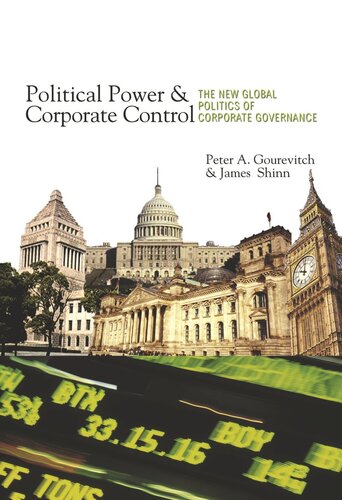

Most ebook files are in PDF format, so you can easily read them using various software such as Foxit Reader or directly on the Google Chrome browser.
Some ebook files are released by publishers in other formats such as .awz, .mobi, .epub, .fb2, etc. You may need to install specific software to read these formats on mobile/PC, such as Calibre.
Please read the tutorial at this link: https://ebookbell.com/faq
We offer FREE conversion to the popular formats you request; however, this may take some time. Therefore, right after payment, please email us, and we will try to provide the service as quickly as possible.
For some exceptional file formats or broken links (if any), please refrain from opening any disputes. Instead, email us first, and we will try to assist within a maximum of 6 hours.
EbookBell Team

4.3
68 reviewsWhy does corporate governance--front page news with the collapse of Enron, WorldCom, and Parmalat--vary so dramatically around the world? This book explains how politics shapes corporate governance--how managers, shareholders, and workers jockey for advantage in setting the rules by which companies are run, and for whom they are run. It combines a clear theoretical model on this political interaction, with statistical evidence from thirty-nine countries of Europe, Asia, Africa, and North and South America and detailed narratives of country cases.
This book differs sharply from most treatments by explaining differences in minority shareholder protections and ownership concentration among countries in terms of the interaction of economic preferences and political institutions. It explores in particular the crucial role of pension plans and financial intermediaries in shaping political preferences for different rules of corporate governance. The countries examined sort into two distinct groups: diffuse shareholding by external investors who pick a board that monitors the managers, and concentrated blockholding by insiders who monitor managers directly. Examining the political coalitions that form among or across management, owners, and workers, the authors find that certain coalitions encourage policies that promote diffuse shareholding, while other coalitions yield blockholding-oriented policies. Political institutions influence the probability of one coalition defeating another.